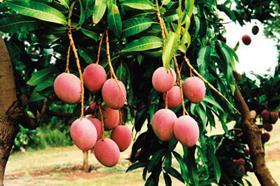
Australian mango exporters are eyeing opportunities in the US, with peak body the Australian Mango Industry Association (AMIA) confident of securing market access to the North American nation this season.
The AMIA has been working closely with the Australian Government and US authorities to process a work plan that would see trade commence over the coming months.
“The first year of the project will be about establishing a working protocol and learning the best way to manage logistics,” said AMIA chairman Gavin Scurr. “Once in the market, we will be able to drive demand and the amount of fruit being exported will increase in future seasons.”
The Australian industry’s bid for US market access ties in with last week’s launch of the Mango Export Plan. The plain aims to increase export volumes by 100 per cent over the next three years. Australia currently ships between 4,000 and 5,000 tonnes of mangoes to international markets each year, with AMIA expecting volumes to leap to 10,000 tonnes by the 2016/17 season.
The Mango Export Plan will focus on four key areas; industry cohesiveness, consistent supply of mangoes for export markets, evaluating market attractiveness and improving current export protocols.
To help finance the implementation of the plan, AMIA has sought assistance from newly formed research, development and marketing body Horticulture Innovation Australia (formerly Horticulture Australia Limited).
“We have prepared and submitted a funding application to Horticulture Innovation Australia and if approved, it will enable us to put our plan into action,” Scurr explained. “With the support of the Australian Government and Horticulture Innovation Australia, we will be able to unlock the potential of export markets.”
The development of the export plan comes after the approval of the Plant Health Australia and Emergency Plant Pest Response levies in July.
“There was some opposition of these levies in the senate and Mr Joyce (Australian minister for agriculture Barnaby Joyce) was instrumental in making sure that common sense prevailed and the levies, which were supported by a majority of mango growers, were left unchanged,” Scurr said. “These levies put the mango industry in a strong position to deal with any pest incursions that may happen in the future.”



